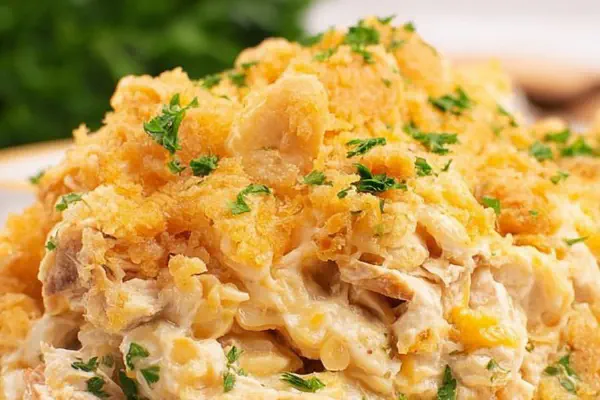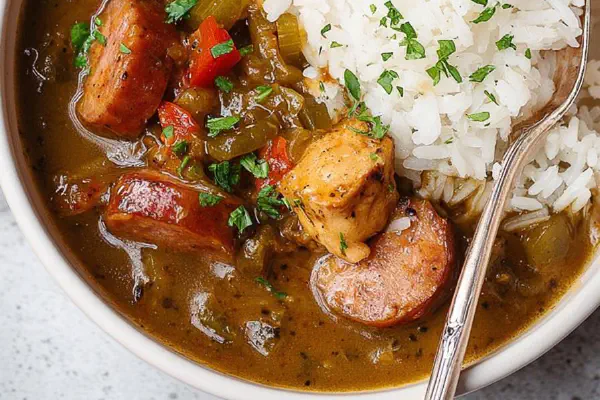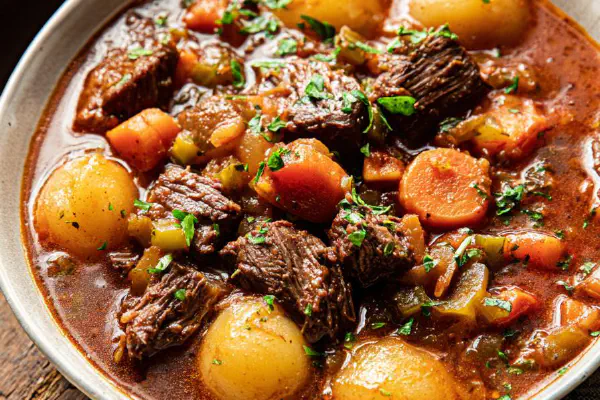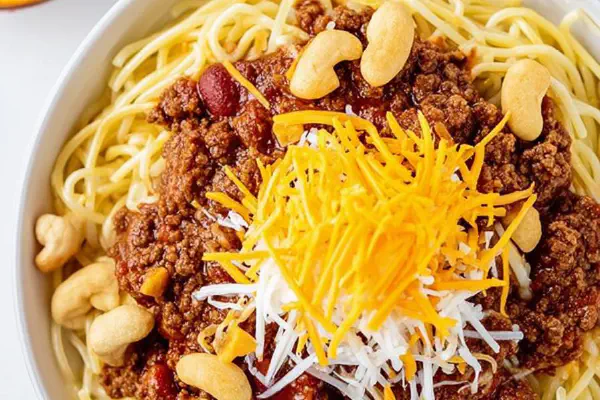Featured Recipe
Stuffed Bell Peppers Remix
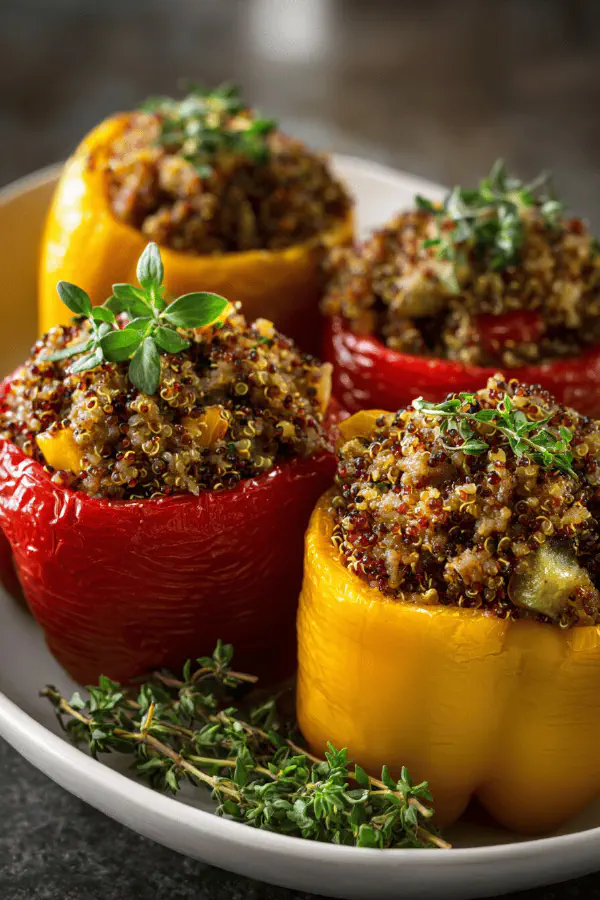
By Kate
"
Bells hollowed, filled with a mix of leftover meat stuffing and grains. Uses pork sausage instead of turkey, swaps rice with quinoa for texture and nutrition. Olive oil swapped for avocado oil to tolerate higher heat. Cooking time slightly adjusted to maintain pepper tenderness and filling warmth. Garnished with fresh thyme or oregano to boost aroma. Recipe focuses on tactile cues and aroma rather than strict timing. Practical tips to keep peppers upright and avoid sogginess included. A flexible blueprint for transforming leftovers with a savory twist.
"
Prep:
15 min
Cook:
50 min
Total:
65 min
Serves:
4 servings
leftover transformation
comfort food
healthy grain
Introduction
Leftover stuffing from roast pork sausage—not turkey this time, something fattier with more bite—blended into a different grain base. Quinoa replaces plain rice, adds nuttiness, keeps moist without mush. Peppers color the dish summery and fresh yet roast long enough for deep flavors. Avocado oil is a swap, higher smoke point prevents bitterness or burnt taste lurking in olive oil, especially over 40 minutes+ in heat. The goal? Firm but yielding pepper walls, filling heated through but not dry. Caps sealed to retain moisture, watching the skin blister and soften, releasing savory aromas hinting at thyme or oregano. Sounds of bubbling juices and rising herbal scents cue you on progress.
Ingredients
About the ingredients
Sometimes leftover stuffing spells pork, sometimes veggies with grain or bread base. Adapt as needed. Quinoa here swaps rice for extra protein and texture—fluffy but not wet. Avocado oil preferred to olive oil for roasting; burns less, keeps pepper skins vibrant without bitterness. Peppers range in colors—green for slight bitterness, red and yellow sweet. Caps saved to seal moisture during roasting, but can be skipped to crisp tops if preferred. Herbs fresh and aromatic brighten final plating, don’t skip despite their small role. Basic seasoning with salt and pepper important: leftovers can get dull in fridge. Work with what you have; meat or vegetarian stuffing both welcome. If peppers wobble like drunk toddlers, shave bottoms flat for stability or roast lying on sides covered with foil.
Method
Technique Tips
Temperature steady at 175 C hot enough yet gentle. Pepper texture relies on avoiding soggy mush; dry interiors before filling. Packing too hard traps cold spots. Oven timing flexible; focus on pepper skin change—blistered, slightly wrinkled, soft but firm to fork poke. Internal temperature should reach safe reheating temps beyond 70 C. Oil drizzled externally carries heat and prevents drying or burning peppers. Using foil to stabilize keeps presentation intact and evenly cooks stuffing. Resting post bake is overlooked but key; juicy filling firms and flavor settles. Garnishes fresh, not dried. Avoid skipping seasoning step before filling; bland leftovers make for dull final result. Keep sensory checks during last 15 minutes—hear gentle crackling, smell rich roasted pork and herbs, note skin softness under poke.
Chef's Notes
- 💡 When prepping peppers, cut tops off evenly. Shaving bottoms flat keeps them upright in dish. No caps? Roast on side. Blistering helps flavors emerge.
- 💡 Cook quinoa just right; fluff with fork post cooking. Dry ingredients. Moisture dilutes flavor. Add herbs before stuffing for extra taste boost—don't skimp!
- 💡 Avoid overcrowding peppers—enough space allows heat circulation. Packing too tight? Filling cool spots. Caps can retain moisture but crisp tops possible too.
- 💡 Drizzle avocado oil on outside. Higher smoke point prevents bitterness from burning. Watch for blisters; means peppers softening. Aroma shifts; cue to check.
- 💡 Leting peppers rest post-bake stabilizes juices. Filling sets, flavors meld. Garnish fresh herbs just before serving. Try thyme or oregano for vibrant touch.
Kitchen Wisdom
How can I fix a soggy pepper?
If peppers become soggy, consider drying inside before stuffing. Also, roasting longer can help, but monitor closely.
Can I use different meats?
Absolutely; mix various proteins or veggies with grains. Ground beef, turkey, or chickpeas work. Get creative with stuffings.
What if filling doesn't heat through?
Check oven temp. For uneven heating, stir stuffing before filling. Distribute evenly. Cover if browning too fast.
What's the best way to store leftovers?
Store in airtight container in fridge. Reheat gently in oven or microwave. Separate stuffing and peppers if sogginess feared.
